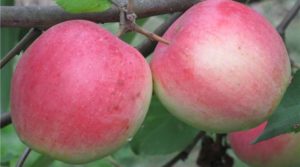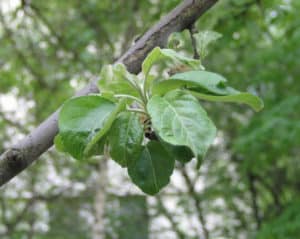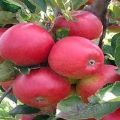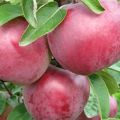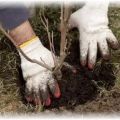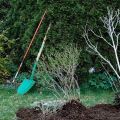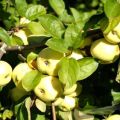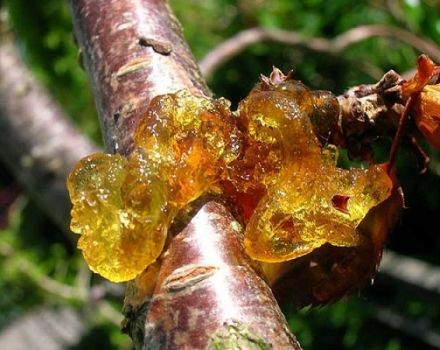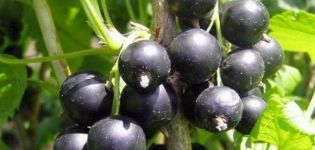Characteristics and description of the Bolotovskoe apple tree, planting, growing and care
The Bolotovskoye apple tree has been cultivated in most regions of Russia for more than half a century. This species has many advantages, including scab resistance.
Breeding history
The hybrid was obtained in 1977 by breeders from Russia. In the 2000s, it was entered into the State Register.
Distribution areas
The main advantage of the Bolotovskoye variety is that the tree will take root in all regions, even in the north. The Bolotovskoe apple tree is grown in the southern and central regions, as well as in the Volga region.
External parameters
The description of the Bolotovskoe variety should begin with the characteristics of the tree. It is important to choose in advance a place for planting crops in the garden.
Wood
The Bolotovskoe apple tree belongs to tall varieties, the tree can grow up to 10 m in height. The crown is oval in shape, not very thickened. Without regular pruning, the tree tends to overgrow.
Leaves
Apple tree leaves are medium in size, rich in light green color. There are small notches along the edge. The leaf blade is dense, with light veins.

Fruit
The fruit of an apple tree is medium in size, growing irregularly on the tree. On one apple tree, you can see both large fruits weighing 200 g, and small ones. On average, the weight of the fruit is 100 g. The skin is without wax, matte. The shade is yellow with red stripes. The pulp is fine-grained, juicy, with a sweet and sour aftertaste.
All about the harvest
Every gardener, buying one or another variety of apples, hopes that it will be the most productive. And in order not to miscalculate, it is worth studying the yield of an apple tree before buying a seedling.
Pollinating varieties
To increase yields, pollinator varieties are planted next to the plant:
- Cinnamon striped;
- Antonovka;
- Welsey;
- Pepin Saffron.
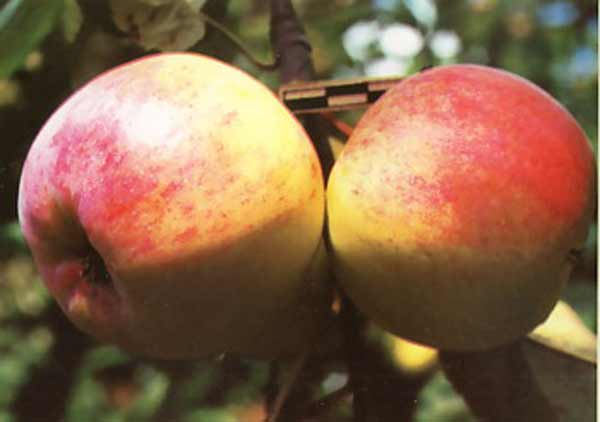
The distance between plants is from 3 to 4 m.
The beginning of fruiting
The tree begins to bear fruit in the 4-5th year after planting. Bolotovskoe belongs to the early ripening winter varieties. The first ripe fruits on the tree can be seen in September.
Flowering and ripening of fruits
The apple tree begins to bloom in mid-May.Mass ripening of fruits begins from mid-September to mid-November.
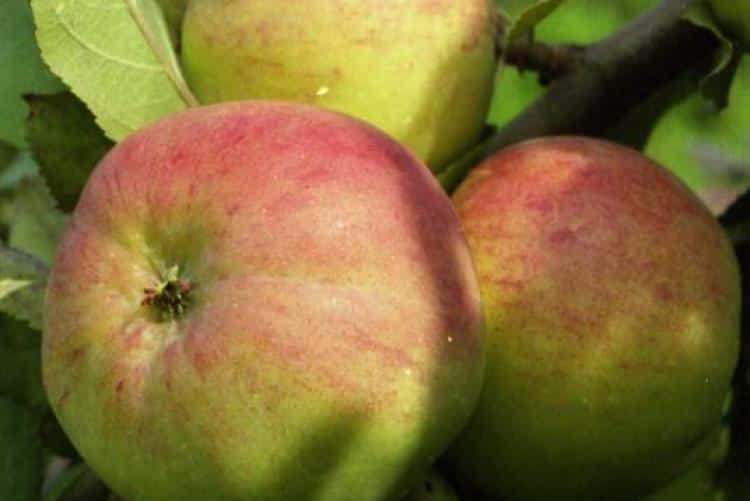
Collecting and using apples
The collection of Bolotovskoye apples is extended until mid-October. Not quite ripe fruits are immediately plucked from the tree and stored until spring. Winter apple varieties are suitable for spinning and baking. They need to be eaten fresh after they lie down a bit after harvesting.
In order to keep the harvest longer, the harvested apples are placed in a cool, dark room and laid out in one layer.
Specifications
The technical characteristics include frost resistance, drought resistance and immunity. These characteristics are important for the selection of regions for growing apple hybrid.
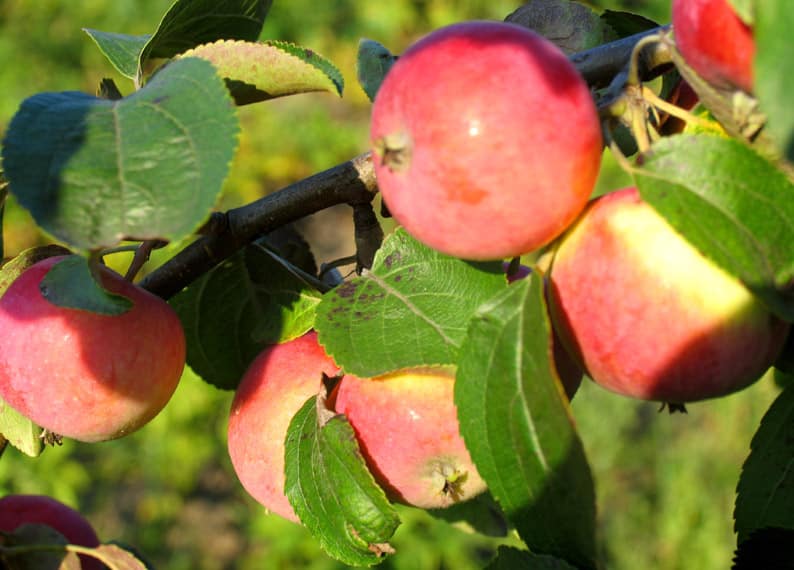
Tree life
The Bolotovskoe hybrid begins to bear fruit late. The peak of its fruiting occurs at 15 years, so the plant belongs to long-livers. The average lifespan of an apple tree is 40-45 years. The tree can grow longer, but the yield will be extremely low.
Frost and drought resistance
The main advantage of this variety is its frost resistance. Even at very low temperatures, the tree can survive frost. The minimum temperature threshold at which the apple tree does not die is -35 degrees. Therefore, the hybrid is suitable for growing in the regions of the Far North, if the apple tree is insulated in the fall. The variety is also resistant to drought. If the drought lasts a long time, it is worth additionally watering the apple tree.
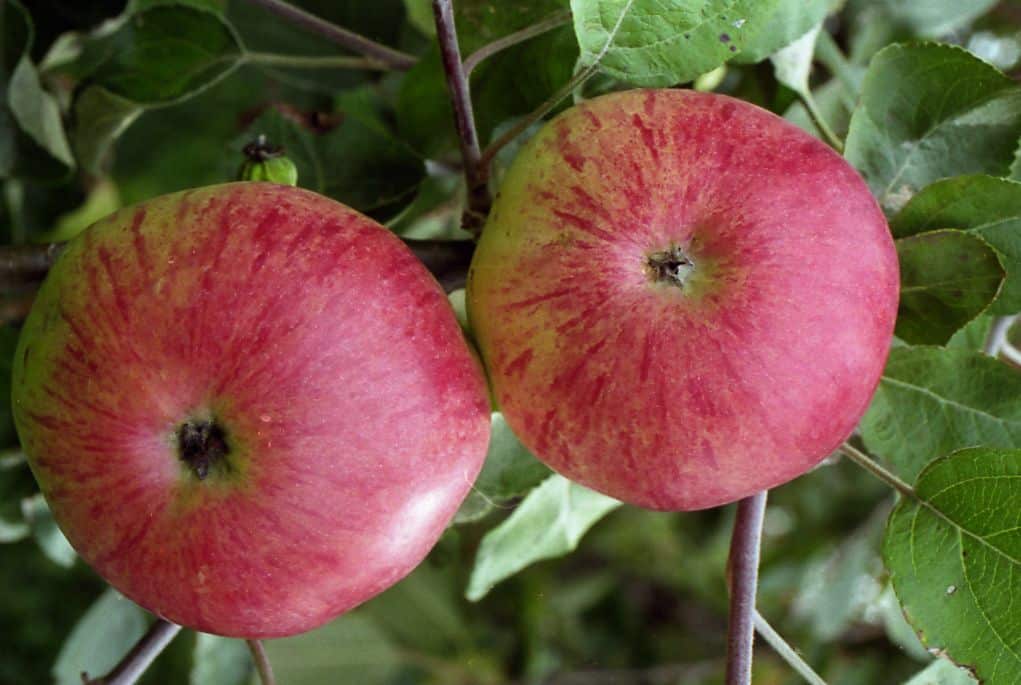
Disease resistance
The Bolotovskoe apple tree is resistant to one disease - scab. The plant has an average immunity to other fungal and bacterial diseases.
To prevent the appearance of diseases, it is important not to thicken the planting and remove the foliage from the site in autumn.
How to plant and properly care
Observing all the rules of agricultural technology during planting a seedling, you can significantly increase the yield of an adult tree and increase immunity. \

Selection and preparation of seedlings
Only healthy seedlings with a well-developed root system are suitable for planting. The roots should be firm, and the branches should show no signs of damage.Before planting, the rhizome is dipped in a liquid clay solution. You can also soak the root system in a growth activator a few hours before planting.
Optimal timing
Saplings are planted in spring and autumn. In spring, the apple tree is planted from April to May. In autumn, trees are planted from mid-September to October. Autumn is considered the most favorable for planting a seedling.
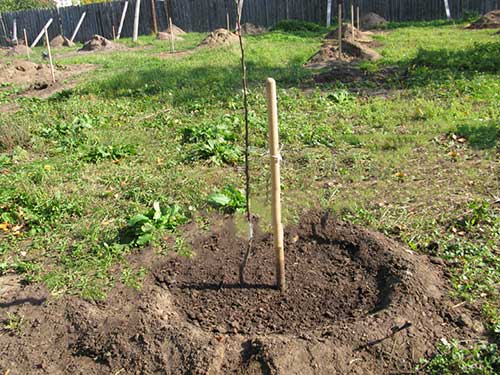
Choosing the best landing place
It is recommended to plant an apple tree in open sunny areas. Trees should be in the sun most of the day. The distance between other trees is at least 3 m.
Procedure technology
For 2 weeks, the soil is dug up, a hole is pulled out and the topsoil is mixed with manure and bone meal.
Planting stages:
- Place a seedling in the hole.
- Spread the roots and cover with soil.
- Drive in a stake and tie the trunk of the apple tree to it.
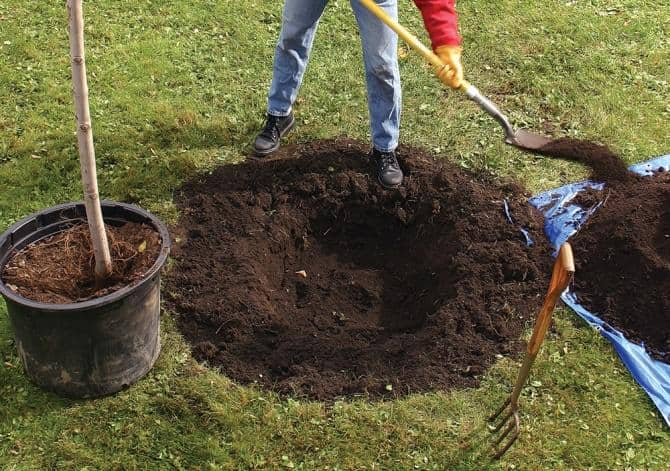
The last step is to water only the planted tree with warm or sun-warmed water.
Features of caring for young and adult trees
Without leaving, the apple trees quickly stop bearing fruit and often begin to hurt. First of all, it is important to regularly apply organic and mineral fertilizers.
Regularity of watering and feeding
Before watering, the soil is loosened, and then weeds are removed. Weeds should be destroyed regularly so that diseases and pests do not appear in the garden. Watering and fertilizing are applied four times per season at about the same time.
The first irrigation is carried out during the formation of the kidneys. The second is during flowering. The third watering during the period of fruit filling. The last time the soil is irrigated before the onset of cold weather.
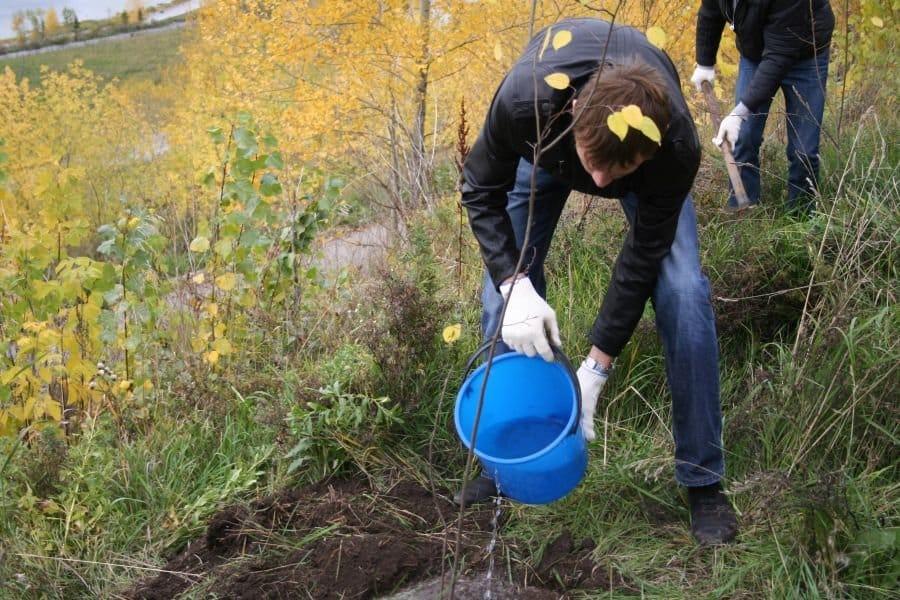
In the first half of the season, the soil is fertilized with nitrogen.After flowering, phosphorus and potassium are added to the soil. It is also helpful to fertilize the soil with manure, wood ash, urea, or bird droppings.
Pruning and shaping the crown
The apple trees are cut in the second year after planting the seedling. 3-4 skeletal branches are left on the tree, the rest are cut off. You can also remove the tip. Then, every spring, some of the young branches are cut. Sanitary pruning is carried out in autumn. Sick and affected branches are removed.
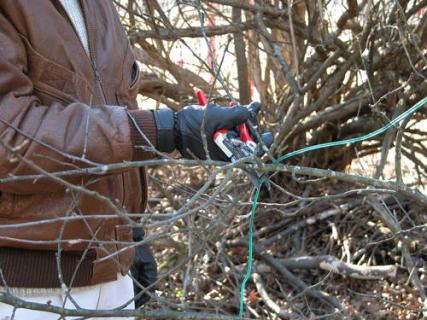
Treatment
In the spring, trees are sprayed with Bordeaux liquid. After the first procedure, you need to wait two weeks and re-process the apple tree.
Preparing for winter
Before the onset of winter, the soil around the apple tree is dug up and mulch is applied. The width of the mulch should not be less than 15 cm. Also, the lower part of the trunk is covered with fir branches. This is necessary if the bark is gnawed by mice in winter.
